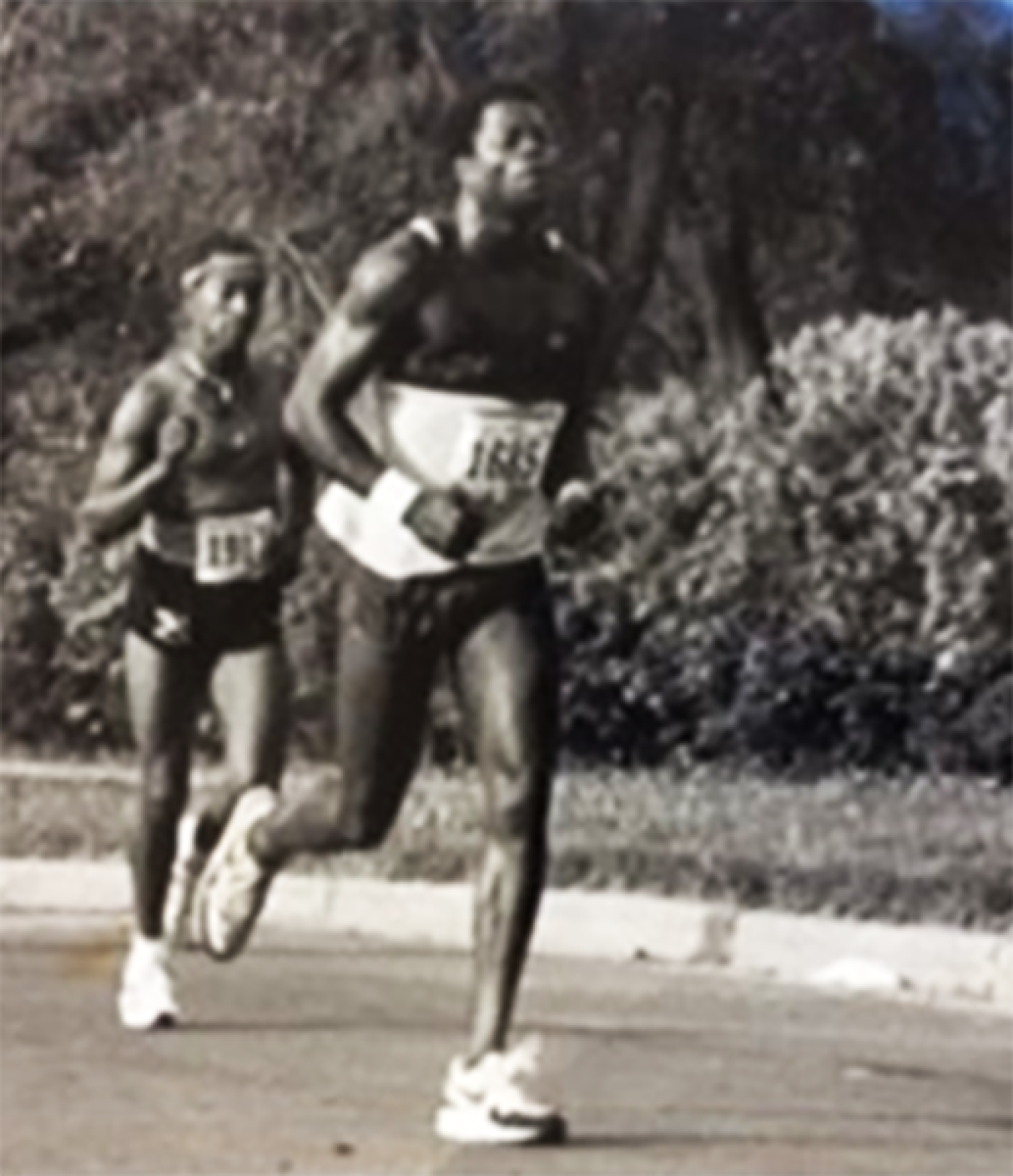Cheran Shields' off-the-job talent has helped him go the distance at NNSA.
National Nuclear Security Administration
November 17, 2020
Being part of the Nuclear Security Enterprise takes skill, smarts, and determination. From research scientists developing innovative new technologies to administrative professionals organizing day-to-day operations, it’s no surprise that the National Nuclear Security Administration (NNSA) workforce is filled with impressive people. What some members of the NNSA family accomplish in their spare time, however, is truly unexpected.
Cheran Shields, an information technology client relationship advocate within the NNSA Office of the Associate Administrator for Information Management and Chief Information Officer (NNSA OCIO), joined the United States Army in 1978 as a 72-E/G Data & Telecommunications Specialist. He served in the Army until 1985, and transitioned to the Washington, D.C., National Guard in 1986, where he was a Computer Repair Technician. He completed his time in the Guard in 1991.
Cheran works closely with the IT business operations and cyber operations functional offices and their customers. He is responsible for collecting and facilitating customers’ IT needs and translating them into valid IT requirements. His work also ensures appropriate IT capabilities and functionalities are in place to accommodate customer IT requests from start to finish.
What is your hidden talent?
I was an avid runner and have completed several marathons. In 1990, I participated in a half marathon with my National Guard running team in Lincoln, Nebraska, where I placed 64th out of 2,100 runners with a time of 1:44:44.

How did you get involved in running?
While in high school, I was very active in sports. My older brother ran cross-country and he inspired me to participate in the sport too. Immediately after high school, I enlisted in the United States Army and my first duty station was in Germany, where I ran track for the U.S. Army EURO-Team. I later became a member of the “Run For Your Life” club and averaged 150 miles per month. After my active duty tours, I enlisted in the Washington, D.C., National Guard, where I continued my strong interest in running and joined a five-member marathon team. For several years we participated in the annual Marine Corps Marathon held in Washington, D.C., and the National Guardsman Marathon, held in Lincoln, Nebraska. As time progressed I continued my involvement in sports and coached both my son and daughter from middle school through their high school years.
How does this hidden talent relate to what you do at NNSA?
Being a runner and involved in athletics in general has helped me to develop as a team player and gain a better understanding of the value of many people working together toward a common goal. Before each race, I visualized the outcome, and refused to stop until I crossed the finish line. Having a plan and an expected outcome was key during every race and key in every program and project I am involved in today in the workplace. I am passionate about motivating and encouraging others to explore and discover their gifts and talents, and inspiring them to empower those around them.
What are some of your challenges in being an avid runner?
My greatest challenge was giving up on what I love and have been doing for a very long time: running. After many years of wear and tear, my knees told me to slow down, so instead of running I now remain active as a cyclist.
What advice do you give to anyone wanting to run a race?
If someone is interested in running, I recommend beginning with a 5k (5 kilometers, or 3.2 miles). There are many websites that offer “Couch to 5k” instructions to get started. From there, you can progress to a 5-miler, and work your way up to a half-marathon. I encourage folks to join an organized run in support of a local non-profit or a charity organization if possible, even if it is a “virtual 5k,” as it is inspiring to participate in events along with other runners. Soon enough, you’ll build up the love for running, and your stamina. As you progress, it will become second nature to you. With any new hobby or passion, it’s important to believe in yourself, and use positive self-talk.

